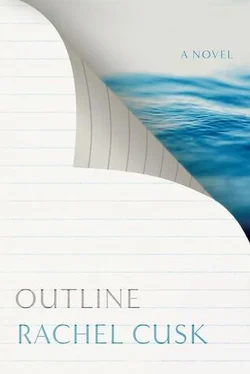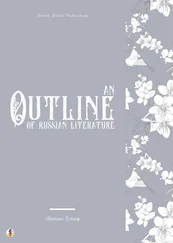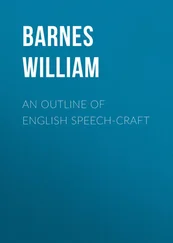Was it not the case, said Aris — the boy who the previous day had mentioned the putrefying dog — that we use animals as pure reflections of human consciousness, while at the same time their existence exerts a sort of moral force by which human beings feel objectified and therefore safely contained? Like slaves, he said, or servants, in whose absence their masters would feel vulnerable. They watch us living; they prove that we are real; through them, we access the story of ourselves. In our interactions with them we — not they — are shown to be what we are. Surely — for human beings — the most important thing about an animal, he said, is that it can’t speak. His own story concerned a hamster he had when he was small. He used to watch it run in its cage. It had a wheel it ran around. It was always running — the wheel whirred and whirred. Yet it never went anywhere. He loved his hamster. He understood that if he loved it he had to set it free. The hamster ran away, and he never saw it again.
Georgeou informed me that the hour, according to the clock I could no longer see, because it was positioned directly behind my head, was now up. He had added on a few minutes for the time I had spent in the corridor: he hoped I was in agreement with that decision, which he had had to take alone, so as not to interrupt.
I thanked him for this information, and thanked the class for their stories, which, I said, had given me great pleasure. Rosa had produced a pink box tied with a ribbon, which she passed to me across the table. These were almond cakes, she said, that she had baked herself, from a recipe her grandmother had given her. I could take them away with me; or, if I preferred, I could share them out. She had baked enough for each member of the class to have one, though since Cassandra hadn’t turned up, there would be one left over. I untied the ribbon and opened the sweet-smelling box. Inside there were eleven little cakes, perfectly arranged in white frilled wrappers. I turned the box so that all of them could see what Rosa had done before passing them around. Georgeou said he was relieved to have been given the opportunity to examine the contents of the box, which he had noticed early on and had been somewhat anxious about, thinking there might be an animal inside.
‘Don’t mind me,’ said the woman who was sitting on Clelia’s sofa when I came out of my bedroom at seven o’clock in the morning.
She was eating honey straight from the jar with a spoon. Two large suitcases stood on the floor beside her. She was an attenuated, whey-faced, corkscrew-haired person somewhere in her forties, with an unusually long neck and a rather small head, like that of a goose. Her voice had made quite a distinctive squawking sound, which added to the impression. I noticed the pale green colour of her small, unblinking, lashless eyes beneath severe black brows: she kept the lids slightly crinkled in a kind of grimace, as though for protection against the light. It was suffocatingly hot in the apartment. Her clothes — a wine-coloured velvet jacket, a shirt and trousers, and a pair of heavy-looking black leather boots — must have felt uncomfortable.
‘I’ve just flown in from Manchester,’ she explained. ‘It was raining there.’
She was sorry to arrive so early, she added, but the timing of her flight was such that short of going to sit in a café with her suitcases there was nothing else she could think of. The taxi driver had helped her carry them up the stairs, which was the least he could do, she said, after occupying the entire half-hour journey from the airport telling her in meticulous detail the plot of the science-fiction novel he was writing, she having made the mistake of telling him she had come to Athens to teach a writing course. His English was very good, though he spoke it with a strong Scottish accent: he had spent ten years driving a cab in Aberdeen, and had once given a ride to the writer lain Banks, who had, so he said, been very encouraging. She’d tried to explain that she was a playwright, but then he’d said she was getting too technical. By the way I’m Anne, she said.
She stood up to shake my hand and then sat down again. I saw us as though through Clelia’s big windows, two women shaking hands in an Athens apartment at seven o’clock in the morning. Her hand was very pale and bony, with a firm, anxious grip.
‘This is a nice place,’ she said, looking around. ‘I didn’t know what to expect — you never do know what to expect on these occasions, do you? I think I thought it would be more impersonal,’ she said. ‘I reminded myself on the way here to imagine the worst and it obviously did the trick.’
She’d anticipated, for some reason, she continued, being shoved in a box in some anonymous dusty block of flats, where dogs barked and children cried and people hung their washing on pieces of string tied to the window ledges, hundreds of feet above the ground; she’d even envisaged a motorway below, though perhaps it was just that she had seen such places from the cab on the way in, and had memorised them without really looking at them. But she supposed she had expected to be, in some way, mistreated. Quite why that was she wasn’t sure. It was nice, she said, looking around again, to be pleasantly surprised.
She dug the spoon again into the honey jar and lifted it dripping to her mouth. ‘Sorry about this,’ she said. ‘It’s the sugar. Once I start I can’t stop.’
I said there was food in the kitchen if she wanted it and she shook her head.
‘I’d rather not know,’ she said. ‘I’m sure I’ll get there soon enough. It’s always different in a new place, but it’s rarely better.’
I went to the kitchen myself, to make us some coffee. The room was hot and stuffy and I opened the window. The sound of distant traffic passed in from outside. The blank view of the white-painted backs of buildings was entirely in shadow. It was full of strange rectilinear shapes where new structures and extensions had been added, jutting out into the empty space between the two sides, so that in places they were nearly touching, like the two halves of something that had cracked all the way down the middle. The ground was so far below as to be out of sight, hidden in the shady depths of this narrow white ravine of blocks and rectangles where nothing grew or moved. The sun showed like a scimitar at the edge of the rooftops.
‘That woman in the hall,’ Anne said when I returned, ‘gave me the fright of my life. When I first walked in, I thought she was you.’ Her voice came out in a kind of squawk again and she put her hand to her long throat. ‘I don’t like illusions,’ she added. ‘I forget that they’re there.’
She’d startled me several times too, I said.
‘I’m a bit nervous generally,’ Anne said. ‘You can probably tell.’
She asked me how long I had been here, what the students were like and whether I had been to Athens before. She wasn’t quite sure how the language barrier was going to work: it was a funny idea, writing in a language not your own. It almost makes you feel guilty, she said, the way people feel forced to use English, how much of themselves must get left behind in that transition, like people being told to leave their homes and take only a few essential items with them. Yet there was also a purity to that image that attracted her, filled as it was with possibilities for self-reinvention. To be freed from clutter, both mental and verbal, was in some ways an appealing prospect; until you remembered something you needed that you had had to leave behind. She, for instance, found herself unable to make jokes when she spoke in another language: in English she was by and large a humorous person, but in Spanish for instance — which at one time she had spoken quite well — she was not. So it was not, she imagined, a question of translation so much as one of adaptation. The personality was forced to adapt to its new linguistic circumstances, to create itself anew: it was an interesting thought. There was a poem, she said, by Beckett that he had written twice, once in French and once in English, as if to prove that his bilinguality made him two people and that the barrier of language was, ultimately, impassable.
Читать дальше












